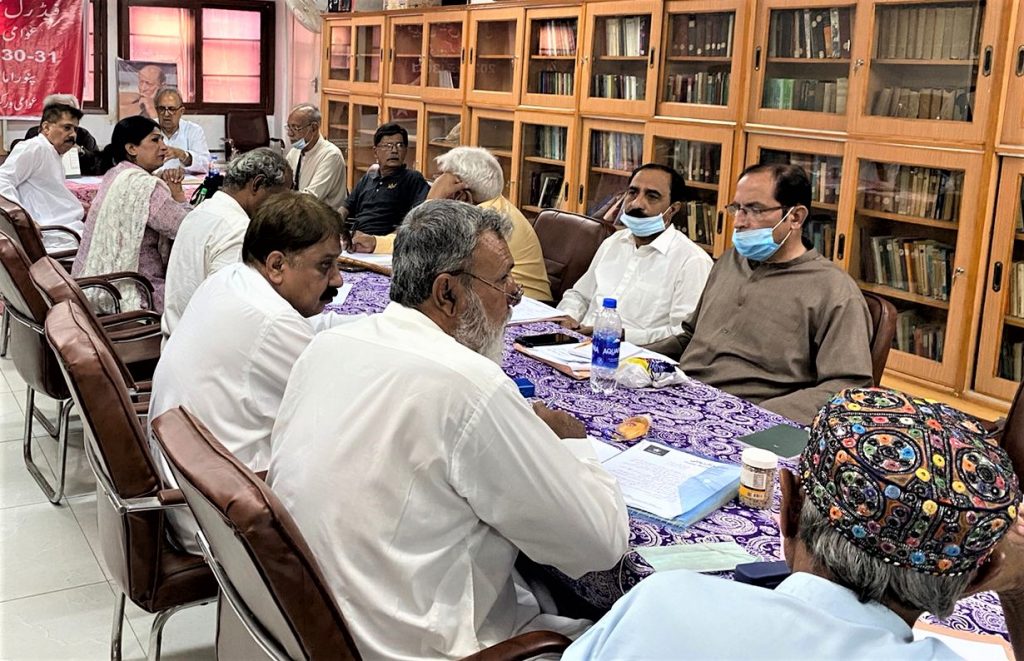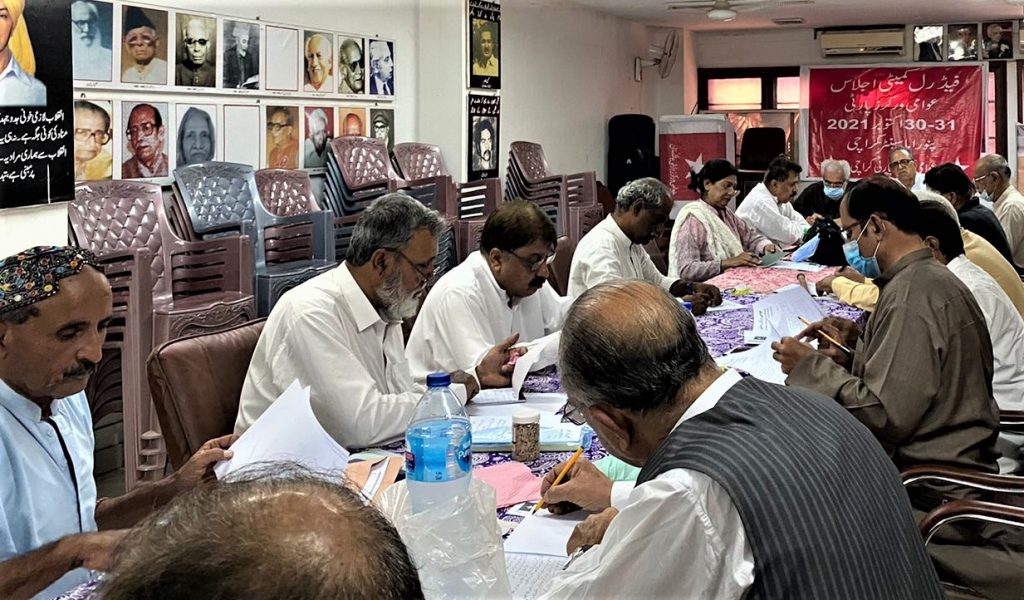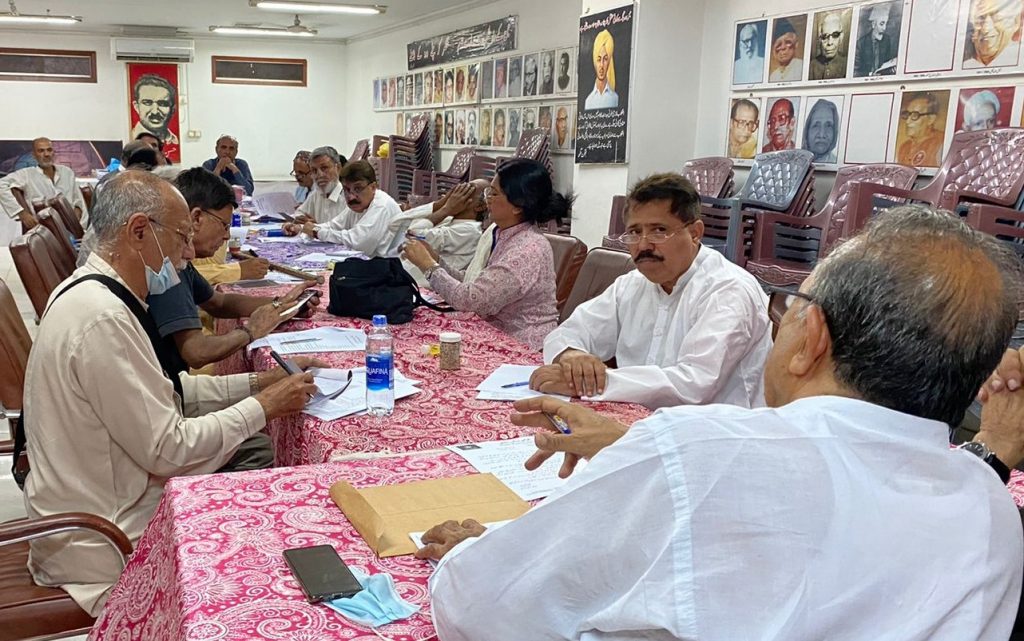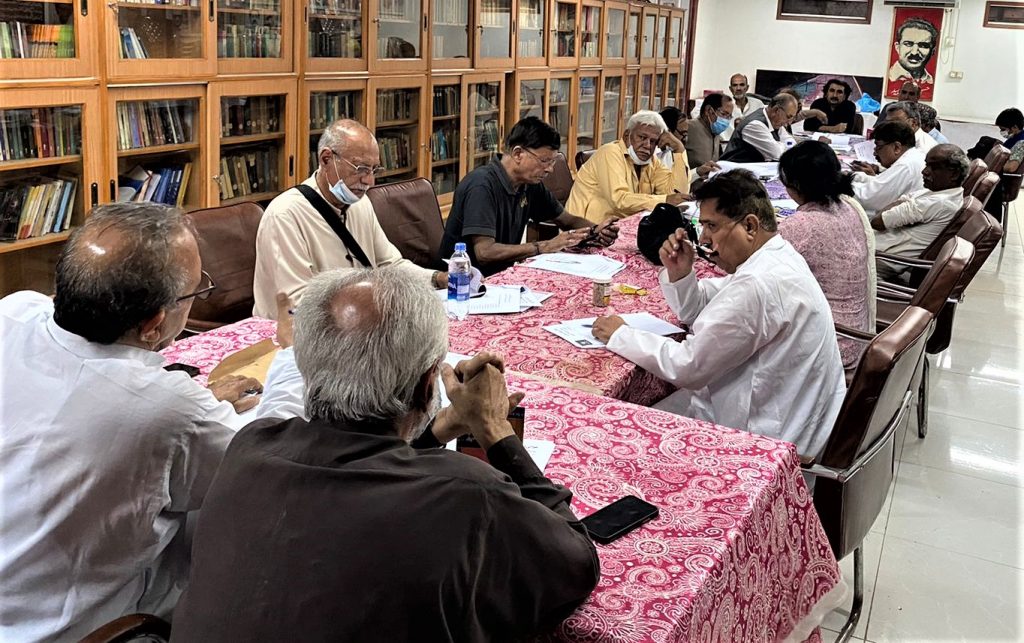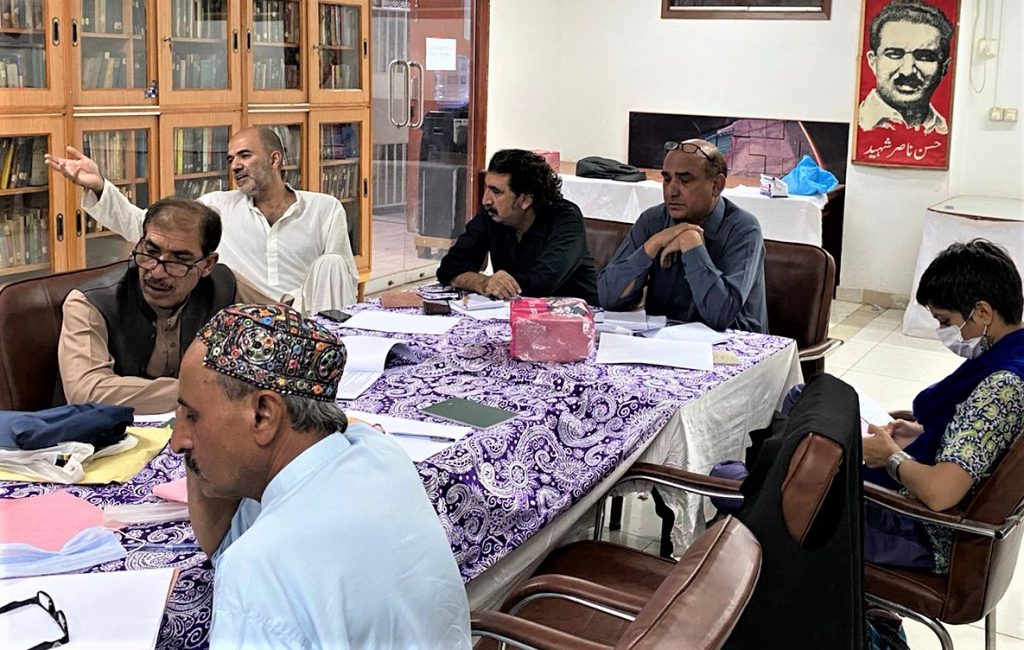Progressive alternative the only panacea to the economic crisis, militarization of the state, society: AWP
Karachi, 31st October 2021 – The Awami Workers Party (AWP) has said that only a meaningful progressive political alternative that can bring together ethnic nations and the country’s working masses offers respite from crushing economic hardship, climate change, the militarization of state and society and the forces of right-wing populism. Unprecedented inflation of basic food items, petrol and utilities like electricity and gas, as well as the reactionary violence of the Tehrik-e-Labbaik Pakistan (TLP) in Punjab and Tehrik-e-Taliban Pakistan (TTP) in the Pashtun tribal districts, are indictments of all mainstream bourgeois parties as well as the omnipotent military establishment, the anti-people policies of which are pushing the country and its predominantly youthful population towards social, economic and political catastrophe.
In a statement issued by AWP’s federal leadership at the conclusion of the party’s two-day Federal Committee meeting in Karachi chaired by AWP president Yusuf Masti Khan and general secretary Akhtar Hussain, the party also expressed complete solidarity with the almost 40 million people of Afghanistan who are facing mass starvation and resolved to continue resisting any and all forms of imperialism in Afghanistan and the region at large.
The AWP leadership has said that the PTI-led hybrid regime has been completely exposed alongside its hollow slogans of providing 10 million jobs and 5 million homes for the poor. By fully implementing neoliberal policies and catering to the land and other mafias, the regime is in fact depriving more Pakistanis than ever of employment, housing and even the right to life.
Meanwhile, the resurgence of the militant right-wing in neighbouring Afghanistan as well as within Pakistan in the form of the TLP and TTP reflects both the establishment’s refusal to discontinue its long-standing patronage of religious militancy and the deepening class and other social cleavages in society which are driving working people towards the politics of hate. Pakistan’s feeble bourgeois parties are concerned only with securing a share of governmental power through deals with the establishment, as became clear during the recent controversy over the DG ISI’s appointment.
The party leadership has said that Pakistan’s ruling elite has no coherent programme to end the spiral of economic brutalization and hateful politics. It remains committed to an unsustainable model of resource extraction and geopolitical rents to serve the interests of external patrons, whilst at the same time giving free license to speculative lobbies, contractors and patriarchs at all levels of society to profit from people’s misery and exploit nature without concern for future generations. The ethnic peripheries, especially Balochistan, become more alienated with each passing day due to unending repression through enforced disappearances and violent target killings.
The AWP is committed to a genuinely radical programme of social and economic redistribution – of land, other natural resources, and in the interests of labour vis a vis multinational capital – to offer the working masses, especially youth, a meaningful alternative to the status quo.
The party has non-negotiable positions on the restoration of trade and student unions across the country, ending rabid privatization, and forever severing neocolonial relationships with international creditors like the IMF which continue to impose stultifying anti-people conditionalities in the name of economic reform.
The weaponization of religion has devastated Pakistani society as well as the region at large and the party is committed to once and for all ending the policy of appeasing the religious right. It calls on the feminist, student, and ethnic-national movements to make common cause with left-progressives engaged in the class struggle. It is in progressive unity that Pakistan’s national security state can be transformed into a genuine people’s welfare state that priorities the needs of long-suffering religious and ethnic populations, and a programme of genuine development be initiated with a non-aligned foreign policy that privileges peace and economic cooperation with neighbouring countries, particularly Afghanistan and India.

